
Benedetto Marelli, an MIT professor, combines engineering and materials science to develop silk-based technologies for global challenges such as food security. He champions the integration of academic research and entrepreneurship, leading to the creation of Mori, a company that markets silk-based food preservation products.
Professor Benedetto Marelli develops silk-based technologies with uses “from lab to fork,” including helping crops grow and preserving perishable foods.
Growing up in Milan, Benedetto Marelli liked figuring out how things worked. He repaired broken devices simply to have the opportunity to take them apart and put them together again. Also, from a young age, he had a strong desire to make a positive impact on the world. Enrolling at the Polytechnic University of Milan, he chose to study engineering.
“Engineering seemed like the right fit to fulfill my passions at the intersection of discovering how the world works, together with understanding the rules of nature and harnessing this knowledge to create something new that could positively impact our society,” says Marelli, MIT’s Paul M. Cook Career Development Associate Professor of Civil and Environmental Engineering.
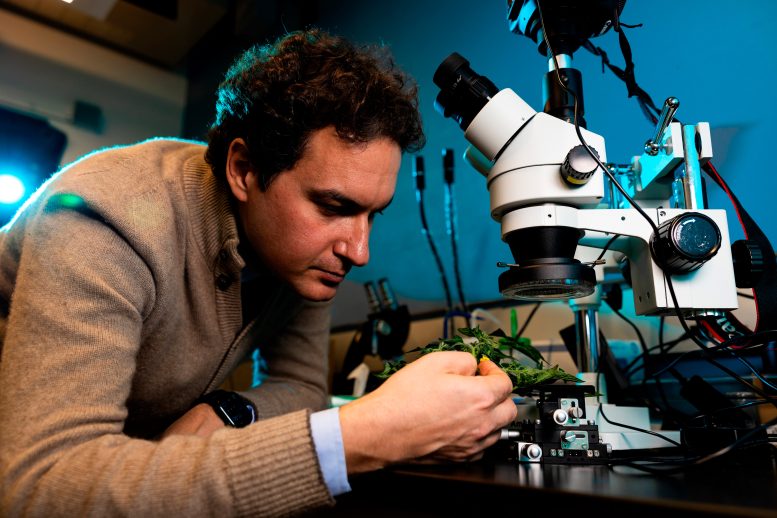
Professor Benedetto Marelli uses silk-based technologies to help crops grow and to preserve perishable foods. Credit: Jake Belcher
Journey Into Biomedical Engineering
Marelli decided to focus on biomedical engineering, which at the time was the closest thing available to biological engineering. “I liked the idea of pursuing studies that provided me a background to engineer life,” in order to improve human health and agriculture, he says.
Marelli went on to earn a PhD in materials science and engineering at McGill University and then worked in Tufts University’s biomaterials Silklab as a postdoc. After his postdoc, Marelli was drawn to MIT’s Department of Civil and Environmental in large part because of the work of Markus Buehler, MIT’s McAfee Professor of Engineering, who studies how to design new materials by understanding the architecture of natural ones.
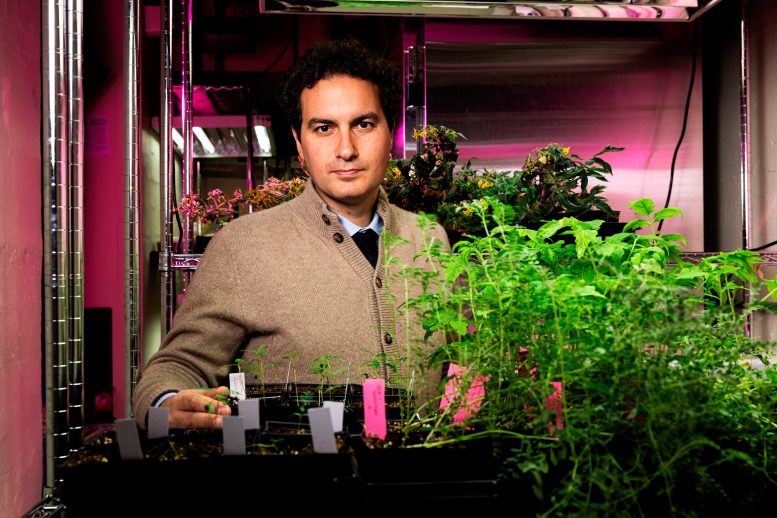
: “Boosting food production to provide food security to an ever-increasing population, soil restoration, decreasing the environmental impact of fertilizers, and addressing stressors coming from climate change are societal challenges that need the development of rapidly scalable and deployable technologies,” Marelli says. Credit: Jake Belcher
“This resonated with my training and idea of using nature’s building blocks to build a more sustainable society,” Marelli says. “It was a big leap forward for me to go from biomedical engineering to civil and environmental engineering. It meant completely changing my community, understanding what I could teach and how to mentor students in a new engineering branch. As Markus is working with silk to study how to engineer better materials, this made me see a clear connection with what I was doing and what I could be doing. I consider him one of my mentors here at MIT and was fortunate to end up collaborating with him.”
Research and Global Impact
Marelli’s research is aimed at mitigating several pressing global problems, he says.
“Boosting food production to provide food security to an ever-increasing population, soil restoration, decreasing the environmental impact of fertilizers, and addressing stressors coming from climate change are societal challenges that need the development of rapidly scalable and deployable technologies,” he says.
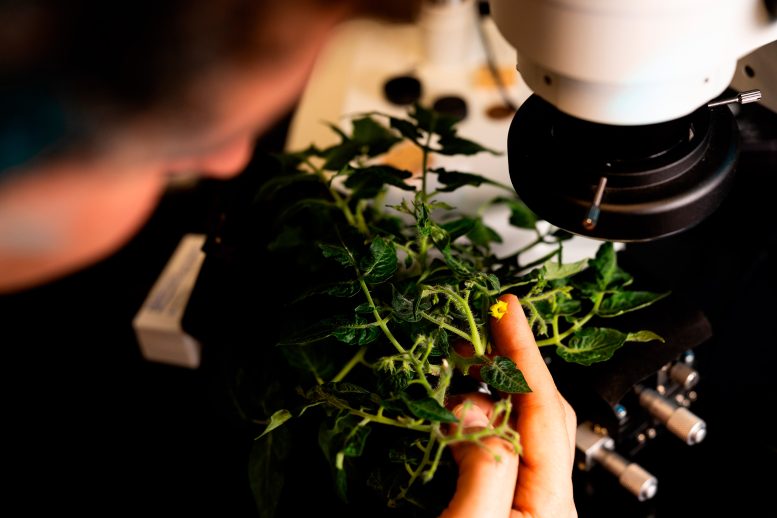
: “Knowing that the technology can move the needle in decreasing two societal crises such as food waste and food-related environmental impact is the highest reward of all,” Marelli says. Credit: Jake Belcher
Marelli and his fellow researchers have developed coatings derived from natural silk that extend the shelf life of food, deliver biofertilizers to seeds planted in salty, unproductive soils, and allow seeds to establish healthier plants and increase crop yield in drought-stricken lands. The technologies have performed well in field tests being conducted in Morocco in collaboration with the Mohammed VI Polytechnic University in Ben Guerir, according to Marelli, and offer much potential.
“I believe that with this technology, together with the common efforts shared by the MIT PIs participating in the Climate Grand Challenge on Revolutionizing Agriculture, we have a real opportunity to positively impact planetary health and find new solutions that work in both rural settings and highly modernized agricultural fields,” says Marelli, who recently earned tenure.
Awards and Entrepreneurship
As a researcher and entrepreneur with about 20 patents to his name and awards including a National Science Foundation CAREER award, the Presidential Early Career Award for Scientists and Engineers award, and the Ole Madsen Mentoring Award, Marelli says that in general his insights into structural proteins — and how to use that understanding to manufacture advanced materials at multiple scales — are among his proudest achievements.
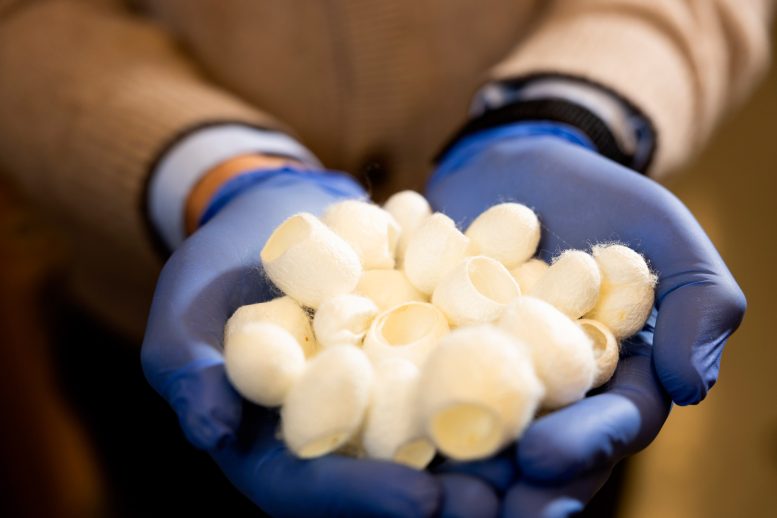
: Marelli and his fellow researchers have developed coatings derived from natural silk that extend the shelf life of food, deliver biofertilizers to seeds planted in salty, unproductive soils, and allow seeds to establish healthier plants and increase crop yield in drought-stricken lands. Credit: Jake Belcher
More specifically, Marelli cites one of his breakthroughs involving a strawberry. Having dipped the berry in an odorless, tasteless edible silk suspension as part of a cooking contest held in his postdoctoral lab, he accidentally left it on his bench, only to find a week or so later that it had been well-preserved.
“The coating of the strawberry to increase its shelf life is difficult to beat when it comes to inspiring people that natural polymers can serve as technical materials that can positively impact our society” by lessening food waste and the need for energy-intensive refrigerated shipping, Marelli says.
Encouraging Entrepreneurship in Academia
When Marelli won the BioInnovation Institute and Science Prize for Innovation in 2022, he told the journal Science that he thinks students should be encouraged to choose an entrepreneurial path. He acknowledged the steepness of the learning curve of being an entrepreneur but also pointed out how the impact of research can be exponentially increased.
He expanded on this idea more recently.
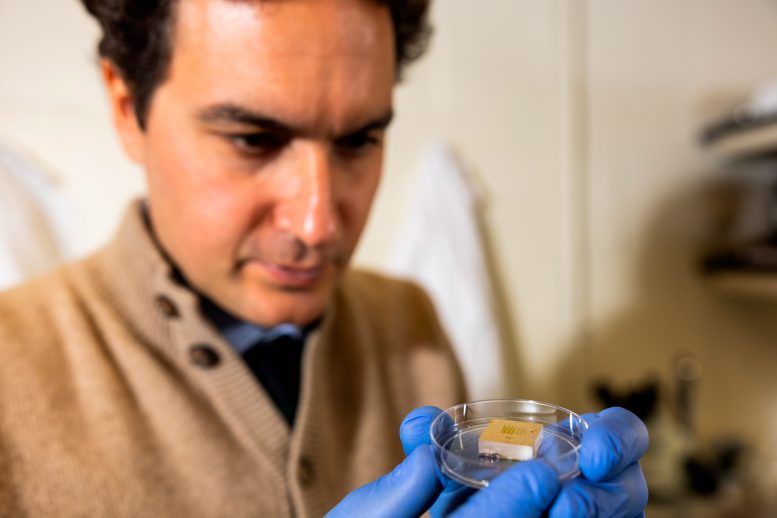
Asked which of his technologies will have the greatest impact on the world, Marelli says, “I’d like to think it’s the ones that still need to be discovered.” Credit: Jake Belcher
“I believe an increasing number of academics and graduate students should try to get their hands ‘dirty’ with entrepreneurial efforts. We live in a time where academics are called to have a tangible impact on our society, and translating what we study in our labs is clearly a good way to employ our students and enhance the global effort to develop new technology that can make our society more sustainable and equitable,” Marelli says.
Referring to a spinoff company, Mori, that grew out of the coated strawberry discovery and that develops silk-based products to preserve a wide range of perishable foods, Marelli says he finds it very satisfying to know that Mori has a product on the market that came out of his research efforts — and that 80 people are working to translate the discovery from “lab to fork.”
“Knowing that the technology can move the needle in crises such as food waste and food-related environmental impact is the highest reward of all,” he says.
Marelli says he tells students who are seeking solutions to extremely complicated problems to come up with one solution, “however crazy it might be,” and then do an extensive literature review to see what other researchers have done and whether “there is any hint that points toward developing their solution.”
“Once we understand the feasibility, I typically work with them to simplify it as much as we can, and then to break down the problem in small parts that are addressable in series and/or in parallel,” Marelli says.
That process of discovery is ongoing. Asked which of his technologies will have the greatest impact on the world, Marelli says, “I’d like to think it’s the ones that still need to be discovered.”








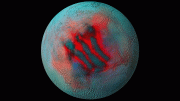
Be the first to comment on "Silk Solutions: Unlocking the Secrets of Natural Materials To Weave a Better World"